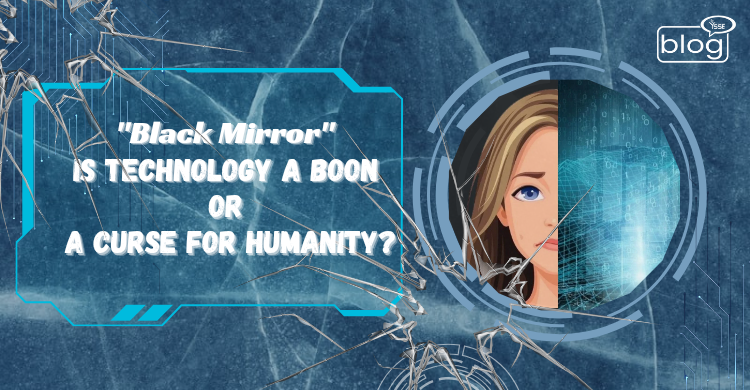In a world where we wake up to phone screens and fall asleep in the buzz of digital static, Black Mirror, the British science fiction anthology show created by Charlie Brooker, is less like TV and more like an awkward mirror reflection. It doesn’t merely entertain; it disturbs. It makes us confront a deeply uncomfortable question:
Is technology still working for us, or is it surreptitiously remaking us in ways we never signed up for?
This tension makes Black Mirror so compelling and so uncomfortable to watch.
A Reflection of Contemporary Anxiety
Each episode of Black Mirror is self-contained with varied characters, storylines, and settings, but they all boil down to one theme: how technology influences our lives, usually in ways that we never even thought of. In other sci-fi shows with flying cars or other worlds, Black Mirror hits way too close to home. The stories are barely a step ahead of where we are now—on social media, spying, online personas, and manufactured intimacy.
Take “Nosedive,” for example. There, each encounter is scored, and your social credit decides the direction of your entire life. Sound familiar? It’s a drearily realistic portrayal of our own lives on the internet today—meticulously crafting each entry, begging for likes, and fearing being out of favor. It’s pastel-hued on the surface but dense and oppressive in terms of emotional content.
Technology Isn’t the Problem—We Could Be
What makes Black Mirror great is the fact that it does not demonize the machines. It’s our use of them that is the problem. It’s not evil technology; it’s bad humans behind the screen.
In “White Bear,” justice becomes a spectator sport of sadism. In “Metalhead,” robotic hounds chase people down—a horrific reflection of the robotic advancements happening in our world. These shows don’t say, “Don’t build.” They say, “Think first before you build, and think more wisely before you use.”
However, the show is not relentlessly dark. In “San Junipero,” we see technology as a comforting balm, a virtual heaven in which two souls love one another after they die. It’s one of the few episodes that is a hug. It reminds us that when technology is motivated by compassion, it can create beauty and healing.
Deeply Human at Its Core
In the end, Black Mirror isn’t about technology—it’s about us. Technology is just the spark. The fire is kindled by universal human emotions: loneliness, insecurity, obsession, guilt, and our perpetual need for validation.
In “The Entire History of You,” there is a memory chip so that everyone can relive every moment of their lives. This sounds ideal until jealousy and suspicion accumulate; the beauty is then a curse. This also indicates that even the most brilliant technology cannot heal what is ill within human beings.
Reflection More than Prophecy
Charlie Brooker has previously stated that the name Black Mirror came from the black screens on our TVs and phones—those dark, reflective surfaces that stare back at us when they are switched off. The series is not trying to predict the future. It is trying to hold up a mirror to who we are now and where we might end up if we are not careful.
Black Mirror doesn’t scream, “Technology is evil!” It simply whispers, “Be careful how you use it.”
It’s not really about doom but about responsibility. It reminds us that being progressive without compassion and ethics can create repercussions we’re not prepared for.
So, is technology a blessing or a curse? It might be both. It might be neither. It depends upon how we design, use, and respond to it. Black Mirror asks us to step back and make that choice.
As the world rushes forward with AI, virtual reality, and digital everything, Black Mirror is more timely than ever. It’s engrossing, certainly, but more significantly, it holds up a mirror and challenges us to actually look.
To read more blogs like this, click here.
Writer
Fatemi Sushom
Intern, Content Writing Department,
YSSE.

